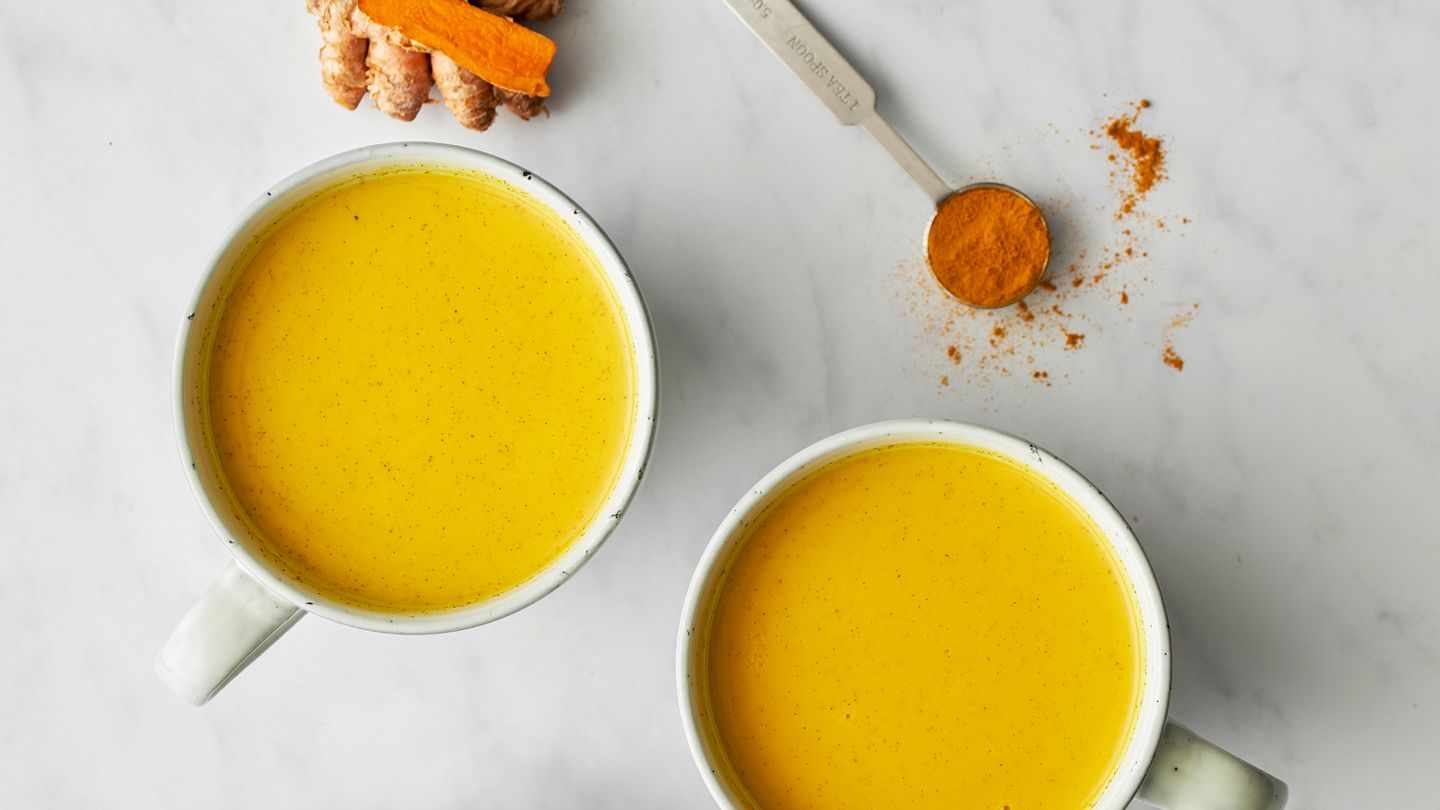If a nice cup of tea sounds like just the thing to help ease your belly, try one of these soothing options.
Before you introduce any major changes to your diet, including upping your consumption of one of these teas, Kennedy recommends talking to your doctor. “Also, don’t have one cup of green tea and expect to be cured,” she says. “Track what you’re taking and make note of the effects to see what might be working for you.”
1. Turmeric Tea
It’s worth noting that most research on curcumin in UC has looked at large, concentrated doses as found in certain supplements rather than the smaller amounts of the substance found in turmeric-based teas, says Fasulo. So while you may find a turmeric-based tea relaxing or soothing, there’s not much evidence that the amount of curcumin it contains will contribute to UC remission.
2. Green Tea
Kennedy notes that research studies typically involve giving rodents much higher amounts of the anti-inflammatory components in green tea than are found in a typical brewed cup. “It might be worth having a couple of cups rather than just one,” she says, to get some of the benefits that studies have found.
It’s worth noting that the most widely studied polyphenols found in green tea — known as catechins — are also found in black and oolong teas, Fasulo says. While all types of tea from the tea plant contain caffeine (except decaffeinated varieties), Fasulo says that a cup of tea typically contains much less caffeine than a cup of coffee. “If someone’s UC is in remission, usually small doses of caffeine are okay,” she adds.
3. Fennel and Ginger Tea
Fennel is thought to be one of the world’s oldest medicinal herbs. In Southeast Asia, it’s commonly consumed after meals to help promote digestion and freshen breath.
4. Slippery Elm Tea
The powdered inner bark of the slippery elm tree has been used in North America to treat conditions ranging from sore throat to skin disorders to digestive problems. Some past research suggests slippery elm contains antioxidants that may help relieve inflammation in UC and other inflammatory bowel conditions, but more studies are needed.
A word of caution: Kennedy says that slippery elm can, at least according to traditional wisdom, cause a miscarriage and should be avoided by anyone who is pregnant or breastfeeding. But it’s unclear whether this risk exists when taking slippery elm orally rather than vaginally. Because slippery elm coats the digestive tract, it may slow the absorption of other herbs or drugs. With that in mind, you should take slippery elm at least one hour after any other herbs or medications you are taking.
The Takeaway
- Drinking herbal teas may help soothe symptoms of ulcerative colitis and improve your overall well-being.
- Teas like turmeric, green, fennel and ginger, and slippery elm contain properties that may reduce inflammation and digestive distress.
- With your doctor’s approval, try adding these teas to your daily routine to see if they may benefit your symptoms.
Read the full article here




